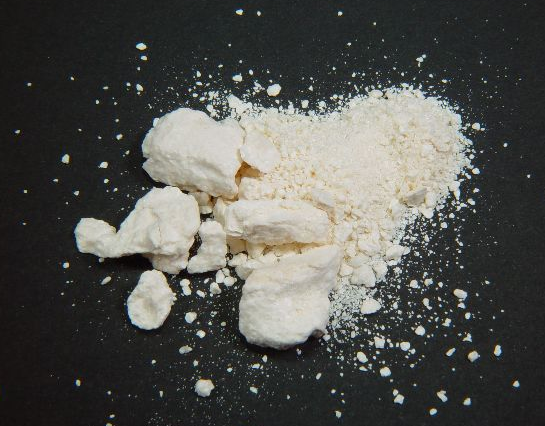Drugs: Know the Facts
Crack
Drugz Your Choice… Fact: Crack is cocaine that has been processed into rock crystal form. Like cocaine, crack is a powerful and very addictive drug. Crack looks like small white or yellow pebbles of various sizes and shapes. Crack is almost always heated in a pipe and smoked. It gets its name from the crackling sound the drug makes as it heats up.
Short-Term Effects
Crack is a stimulant that is absorbed through the lungs and almost immediately delivers a jolt to the central nervous system. Users get a quick, intense feeling of power, energy, euphoria, and mental alertness.
Crack causes higher levels of dopamine, a chemical that carries messages within the brain. Higher levels of dopamine give people the feeling of being high. A crack high usually wears off quickly, after about 5 or 10 minutes.
Other short-term effects include:
- higher heart rate, breathing rate, blood pressure, and body temperature
- decreased appetite and less need for sleep
- feelings of restlessness, irritability, or paranoia
- nausea and possibly vomiting
- respiratory problems and lung damage

Smoking large amounts of crack can lead people to become violent and act unpredictably. It also can cause medical problems like heart attacks, strokes, and seizures. These can put people into a coma or kill them.
Long-Term Effects
Crack is even more addictive than other forms of cocaine. It's possible to crave crack after using it just once. It is also possible for people to have a stroke or heart attack the first time they use crack.
After the initial rush of the high wears off, people who use crack say they feel more down or depressed than they were before doing the drug. This can trigger cravings for more and more crack to stay high and avoid these crashes.
People who use a lot of crack develop a tolerance to the drug. They have to smoke more and more of it to feel the same highs. Using large amounts of crack more often increases the chances someone will have a stroke or heart attack.
Smoking large doses of crack or doing crack in binges can make people edgy and irritable. They may have panic attacks and full-blown psychosis where they hear voices and have trouble staying in touch with reality.
Other long-term effects include:
- gangrene in the bowels resulting from decreased blood flow
- physical exhaustion
- nausea and abdominal pain
- headaches and chest pain
- reduced appetite, plus health problems associated with not eating a proper diet
- depression and other mental health issues
Other Possible Problems
Smoking too much crack at one time can lead to an overdose. People who overdose on crack have convulsions and seizures, and may die.
It's extremely hard to kick a crack addiction. Even after people have been off the drug for long periods of time, there is still a risk they'll have a relapse, especially in situations that give them strong cravings for crack.
Crack generally is not as expensive as other forms of cocaine because it is mixed with things that cause powdered cocaine to form crystals. Many of these are harmless, but sometimes producers add ingredients like amphetamines to make crack cheaper. These added ingredients raise the chances of very serious side effects. Crack also has a high potential for abuse.
How Can Someone Quit?
Quitting crack can be very difficult. Most of the time, kicking a crack habit means spending time in a rehabilitation facility or getting cognitive-behavioural or other treatments. Right now, there are no medicines to treat a crack addiction.
If you smoke crack, talking with a counsellor or joining a support group can help make it easier to quit.
Avoiding Crack
Because all it takes is one time to become addicted, and because that one time can kill you, it's important to avoid crack at all costs. No amount of temptation (or peer pressure) is worth a long battle with addiction — or death. Even if crack doesn't end a life, it can ruin one after only one use.
How Can Someone Quit?
Quitting cocaine can be very difficult and usually involves spending time in a rehab facility, cognitive-behavioural therapy, or other therapies. Right now, there are no medicines that are effective for treating cocaine addiction.
Avoiding Cocaine
The chances of becoming addicted to cocaine are high. People can become addicted after only one use. Because that one time can kill, it's important to avoid cocaine at all costs. Even if cocaine doesn't end a life, it can definitely ruin one.
If you think you might have a cocaine problem, talking with a professional counsellor or joining a support group can help make it easier to quit, again, you’ll find sources of help in Drugs: where to get help.
